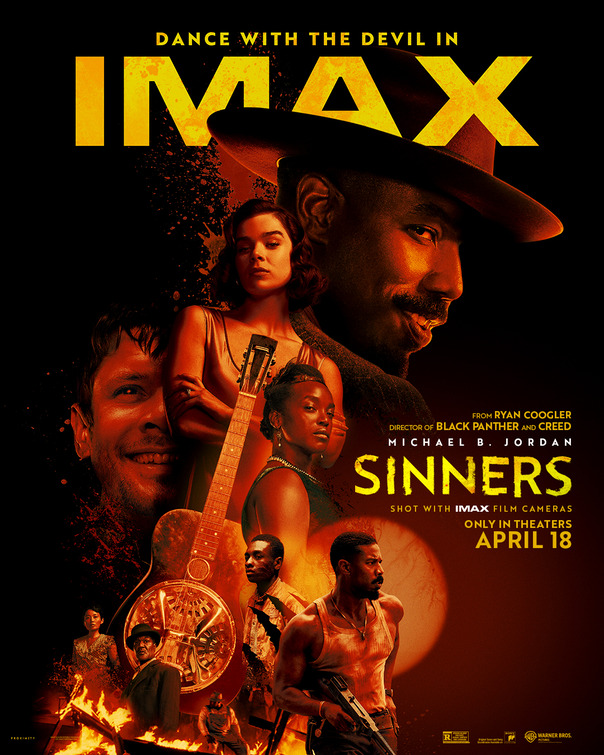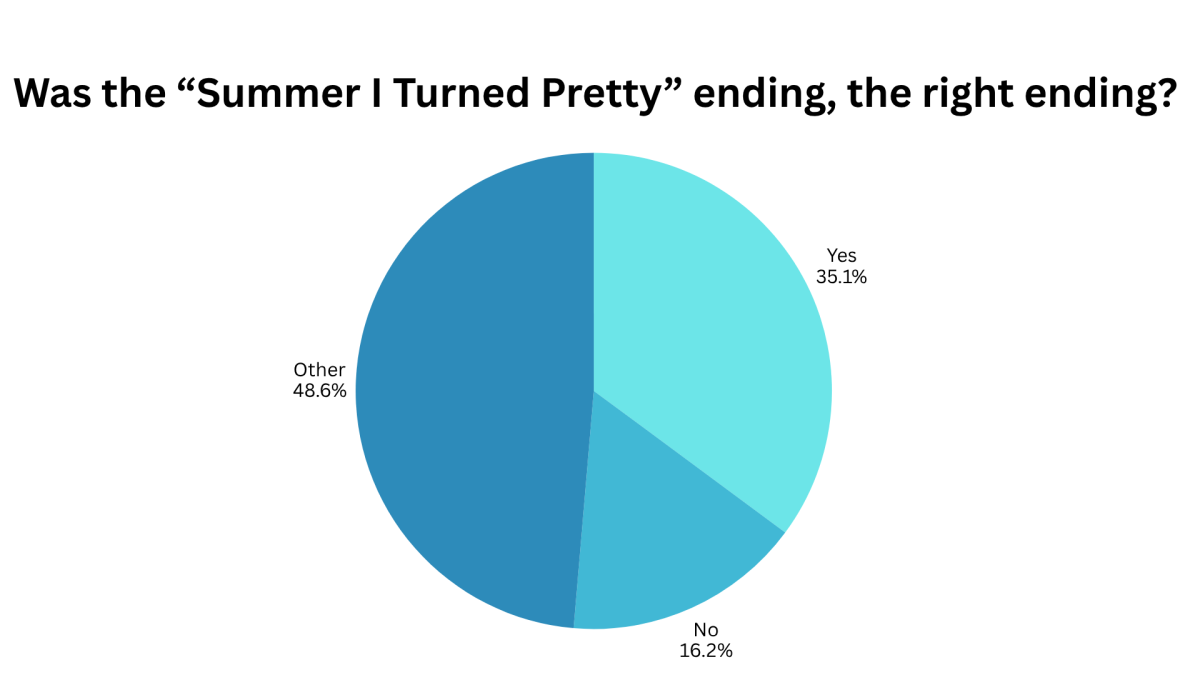During this past summer, various mainstream movies made their debut in theaters, introducing audiences worldwide to their unique stories; However, one film stood out from the rest, becoming an addition to Hollywood history: Ryan Coogler’s “Sinners.” While the film is presented as a horror flick at face value, it’s mainly an examination of American culture and history. The movie specifically explores early 20th-century America and the lasting effects of colonization, using the form of entertainment as a means of educating the viewer. For the first time, many unrepresented communities of the 1930s have their stories told on the silver screen, and viewers learn how these communities’ struggles shaped modern-day America.
One of the main elements of the story, and a connection to American Culture, is Blues Music. Blues music is a genre of music originating in the late 1860s by freed slaves, and later drastically evolved during the Great Migration when Black Americans migrated from the South to the North, as a form of expression. The character Sammie Moore, cousin of the twins Smoke and Stack, both played by actor Michael B. Jordan, conveys the importance of Blues Music.
Blues music, since its creation, has always been an expression of spirituality and mourning; In the film, this belief is further explored. Sammie is explained to have the gift to open spiritual portals and allows him to conjure a connection to people of his culture in the future and past, which stems from the Blues music he creates. Sammie’s gift is a metaphor for the connection of culture through the power of cultural music.
A film example of Blues connection to African spirituality is during the midpoint of the film as the main characters discuss their next moves in surviving the night.
“The Blues wasn’t forced on us like da religion. We brought dis from home” Delta Slim said, “It’s magic what we do. It’s sacred.”
This simple line can come off as an engaging piece of dialogue to hype the audience or be highlighted in a trailer, yet the line is powerful. Especially when having the character Delta Slim relay the message.
Delta Slim, as a character, represents the accompanying effects of slavery and lynchings. Slim witnessed the horrors of slavery firsthand, knowing others who were slaves themselves, having been alive during the post-Civil War era. Even his alcoholic tendencies stem from self-medicating his trauma of watching his friend be lynched by drinking the days away.
The line is powerful when Slim delivers it because he means every word. Slim knew people who carried memories of their ancestors, so he’d recognize the cultural impact of the Blues. To Slim, playing the Blues is a revival of the untouched African culture they used to have.
Still, during the peak of Blues music, many demonized the genre and even rumored a popular Blue musician, known as Robert Johnson, to have made a deal with the devil. Coogler uses Sammie as an allegory for the tale of Robert Johnson.
Robert Johnson was a blues musician born May 8, 1911 and was known for his talent in Blues music. However, Johnson died at the young age of 27. This sparked theories of Johnson selling his soul to the devil at the crossroads. Sammie is similar in the fact that he plays Blues music, and his father claims playing Blues is akin to dancing with the devil.
This parallel is simply a critique of the black community. The character of Sammie’s father is a reflection of how part of the black community will uphold the religion forced upon slaves, yet demonize their origins and connection to African culture. Even in the film Christianity never saves Sammie; it’s the Blues that ultimately saves his life.
Coogler celebrates the Blues in the film and shows how the Blues is only depicted demonically because it was demeaned by the white society of the period. He wants the viewers to see history in a different perspective, not only for non-black viewers but for black viewers as well.
The segregation of the early 20th-century is explored in a different perspective than most media and history textbooks. In the later part of elementary school, many children learn about Jim Crow laws and the enforced segregation between white and black individuals; however, there is no context on what category other races fell in during the Jim Crow Era. “Sinners” partly answers this when it comes to what role Chinese Americans and immigrants played during the duration of the law.
During the Jim Crow era, Chinese Americans and Immigrants held a unique position; they weren’t treated the same as Black Americans, nor were they considered white, as the court case “Gong Lum v. Rice”, a case debating whether the Asian community was considered white, concluded that Asians were not equal to white people in race. However, the differentiation of Asian people and Black people allowed Asian Americans/Immigrants to interact with and provide services to both races, as well as live in black neighborhoods. Especially in Delta, Mississippi, which is the setting of “Sinners”.
The Chows, a Chinese American family, represent the history of Asian Americans during the era. The family runs two stores across from each other in town, one serving white people and the other serving black people. The family isn’t simply placed in the film to provide more characters and means to move the plot along, but to silently teach the audience about the acculturation history between Black and Asian groups that many Americans are unaware of, despite the topic’s importance to American History.
Another lesson in American History is provided by the unspoken connection between the Choctaw Indians, Irish, Black Americans, and Asian Americans/Immigrants. These groups being represented together in the film are no coincidence, since all groups have faced colonization and have connections in American history. For instance, the Irish and Choctaw Indians are connected because in 1847 the Choctaw tribe donated 170$ to aid the Irish during Ireland’s Famine.
The movie even makes a connection to the Irish and Black Americans when colonization is involved. The Irish antagonist, Remmick, a vampire played by Jack O’Connell, said this during the climax of the film when Sammie and he are fighting in the river and Sammy recites a prayer his father had taught him.”Long ago, the men who stole my father’s land forced these words upon us. I hated those men, but the words still bring me comfort.” This quote is powerful, showing how, despite both men being of different cultures, they feel the same comfort in the religion forced upon them, showcasing how impactful colonization was to both groups’ lifestyles.
While “Sinners” can be taken at face value as a simple horror movie to watch during the weekend, the reality is that the movie was impactful for many. The black community saw themselves and their history in this movie; many people in the community came online to show their ancestors during the Jim Crow era and the stories of their lives, using the song “Last Time (I Seen the Sun)” from the “Sinners” soundtrack, creating a sentimental trend the community could bond over. Ultimately, “Sinners” was more than just a story; It was an educational lesson on America’s history and its people’s culture.








